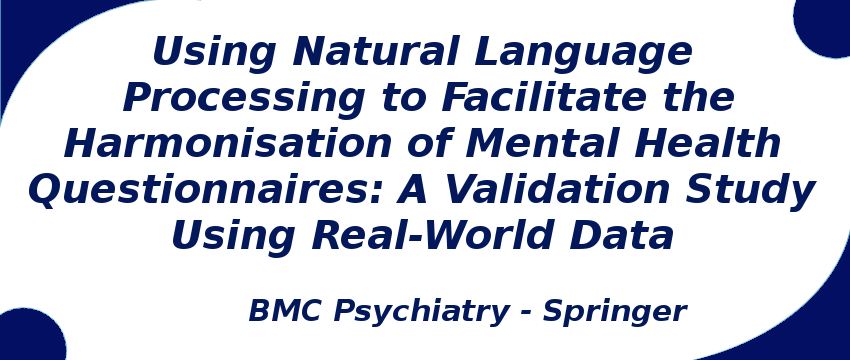Research Area: Machine Learning
Pooling data from different sources will advance mental health research by providing larger sample sizes and allowing cross-study comparisons; however, the heterogeneity in how variables are measured across studies poses a challenge to this process.This study explored the potential of using natural language processing (NLP) to harmonise different mental health questionnaires by matching individual questions based on their semantic content. Using the Sentence-BERT model, we calculated the semantic similarity (cosine index) between 741 pairs of questions from five questionnaires. Drawing on data from a representative UK sample of adults (N?=?2,058), we calculated a Spearman rank correlation for each of the same pairs of items, and then estimated the correlation between the cosine values and Spearman coefficients. We also used network analysis to explore the model’s ability to uncover structures within the data and metadata.This research shows that it is possible to quantify the semantic similarity between pairs of questionnaire items from their meta-data, and these similarity indices correlate with how participants would answer the same two items. This highlights the potential of NLP to facilitate cross-study data pooling in mental health research. Nevertheless, researchers are cautioned to verify the psychometric equivalence of matched items.
Keywords:
Author(s) Name: Eoin McElroy, Thomas Wood, Raymond Bond, Maurice Mulvenna, Mark Shevlin, George B. Ploubidis, Mauricio Scopel Hoffmann & Bettina Moltrecht
Journal name: BMC Psychiatry
Conferrence name:
Publisher name: Springer
DOI: 10.1186/s12888-024-05954-2
Volume Information: Volume 24 , (2024)
